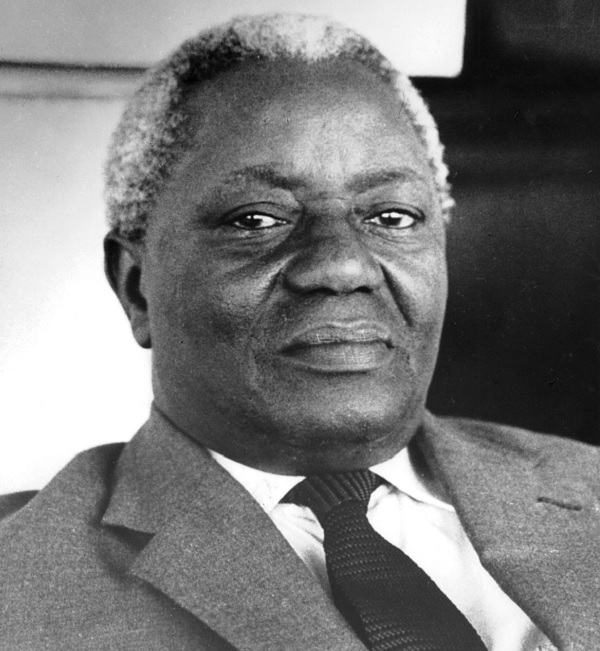
J.B. Danquah on Ghana beyond aid
It is not generally known that Dr J.B.Danquah, the flower of West African scholarship, lawyer, journalist, poet, and philosopher, who died 55 years ago on February 4, 1965, at the Nsawam Maximum Security Prison, did not only struggle fearlessly for the independence and self-government of Ghana; he also believed in the concept of self-reliance for Ghana after independence.
Danquah strongly advocated the need for Ghana to rely on its people for development after achieving independence.
In his view, Ghana would not develop until its people absolutely resolved to be self-reliant.
His was a call to his beloved compatriots to re-orient themselves into believing and working towards the attainment of a self-reliant society.
Belief
J.B.Danquah was greatly concerned about the development strategy which Ghana should adopt after attaining independence.
He strongly believed in the concept of self-reliance or self-help which he considered in terms of increasing substitution of factor inputs derived from within the system as opposed to those from outside.
Briefly stated, Danquah was advocating a type of development strategy for the new Ghana that would rely on “internal” resources as opposed to development that would rely heavily on ‘external’ resources.
For Danquah, self-reliance also implied undertaking economic activities that enhanced the capacity of the Ghanaian society to function over the long-term for the well-being of all its members.
He was indeed concerned about increasing participation of the mass of the people in the production and consumption of the social product.
Self-reliance also meant for Danquah developing in the individual as well as in the society such attitudes as the will to succeed in life through productive labour, to experiment, to be resourceful, and to conquer new frontiers.
This was made evident in a pamphlet published by him on behalf of the Youth Conference in 1943 titled, Self-Help and Expansion: A review of the work and aims of the youth conference.
He advocated the launch of a national fund to be used in providing national education, and in awarding scholarships to scholars as well as to teachers, industrialists, farmers, and other workers to “go abroad and learn, and handle the tools and come back to the country to be pioneers in the total and complete industrialisation of their country’s resources including, of course, mines.”
Throughout this pamphlet, Danquah generally advocated the concept of self-help as a way forward to progress and development.
Transformation
Furthermore, J.B. persistently stressed that authentic self-reliant process of development inevitably results in the transformation of the people who bring about the change, their culture, their attitudes to work, their savings and investment habits, their concepts and skills and their social systems.
He believed that genuine self-reliant development of the economy of the new nation Ghana would result in the process of self-transformation of the people. By the early 1940s, Danquah had become almost restless with the question of Gold Coast self-government and its economic development, particularly industrialisation.
On the latter issue, he admitted in the Self-help and Expansion pamphlet that the Gold Coast was still underdeveloped in 1943 and was not the equal of England, America or Russia. Rhetorically, J.B. asked: But must this state of affairs continue forever?
They did it in Russia in 25 years.
There is no reason why we should not do it in the Gold Coast in 10 years, for our population and our land are not of larger proportions of Russia. Danquah went on: Let no one make a mistake about it.
We are not asking for hand presses and village machines for village industries.
We are asking for a fully industrialised economy.
Historical significance
It is a matter of great historical significance and noteworthy that today’s Ghana, under the presidency of J.B. Daquah’s dynamic grandson, Nana Addo Dankwa Akufo-Addo, is advocating a Ghana Beyond Aid agenda, which, in every respect, is similar to J. B. Danquah’s self-help or self-reliance development strategy. T
The government is today anxious to build a Ghana beyond aid; a Ghana which, like J.B.’s self-reliance agenda, looks to the “use of its own resources.”
In other words, the government aims at building an economy that is not dependent on outside resources or charity and handouts, but an economy that will look at the proper management of its resources as the way to engineer social and economic growth.
Just as J.B. Danquah was anxious for Ghana’s rapid industrialisation, so is President Akufo-Addo, who has publicly declared that the “era of Africa’s industrialisation has dawned.”
The one factory, one-district agenda is a commendable beginning. J.B. Danquah was indeed far ahead of his time.
The self-help development strategy, which he was advocating for Ghana in the 1940s, was indeed the strategy which the United Nations Economic Commission for Africa (UNECA), under the leadership of Professor Adebayo
Adedeji, adopted in the mid-1970s as a key element to the ECA approach to Africa’s development.
Professor SKB Asante is the Executive Director of the Centre for Regional Integration.
